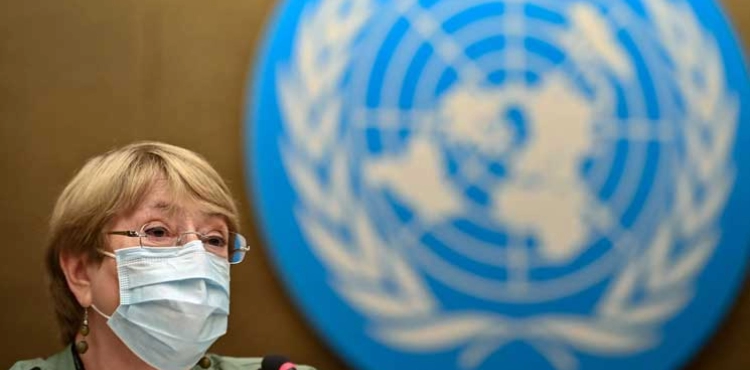The United Nations High Commissioner for Human Rights, Michelle Bachelet, called on Monday for "coordinated action" to help recover from the world´s worst human rights deterioration in decades, citing in particular the situation in China, Russia and Ethiopia.
"To recover from the broadest and most severe series of human rights setbacks of our time, we need a life-changing vision and coordinated action," Bachelet said at the start of the 47th session of the United Nations Human Rights Council.
She warned that "extreme poverty, inequality and lack of justice are on the rise (while) democracy and civic space are declining."
It expressed its deep concern about the situation in a number of countries.
In particular, she indicated her "deep alarm" at reports of "serious violations" in the Ethiopian region of Tigray, which is witnessing a war that has left about 350,000 people threatened with starvation.
She spoke of "extrajudicial executions, arbitrary arrests, arrests, sexual violence against children as well as adults, and forced displacement," and indicated "credible reports" that Eritrean soldiers are still carrying out operations in the region.
Other parts of Ethiopia, where the elections are taking place on Monday, are also witnessing “alarming incidents of bloody inter-communal violence and displacement linked to the increasing polarization linked to historical complaints,” Bachelet said.
And she added, "The continued deployment of military forces is not a sustainable solution."
She also expressed concern about the "panic effect" of the national security law imposed in Hong Kong a year ago.
The law, which went into effect on July 1, 2020, is the spearhead of a massive security crackdown targeting China´s opponents in Hong Kong in the wake of the 2019 pro-democracy protests.
The law heavily criminalizes dissent, gives Beijing jurisdiction over some cases, and gives authorities a new set of investigative powers.
Bachelet warned that "107 people have been arrested under the National Security Law and 57 of them have been formally charged."
The first trial under the new law is due to take place later this week in what it described as an "important test of the independence of Hong Kong´s judiciary".
She indicated that she hopes to be able to finally visit the Chinese province of Xinjiang.
"I continue to discuss ways to visit with China, including meaningful access to the Xinjiang Uyghur Autonomous Region, and I hope that it can be achieved this year," she said, noting that "reports of serious human rights violations continue to come out."
China has faced growing international criticism over its policies in the northwest region, with the United States accusing it of genocide and crimes against humanity against the Uyghurs.
At least one million Uighurs and other Muslim minorities have been detained in camps in the region, according to rights groups accusing the Chinese authorities of imposing forced labor, a charge Beijing strongly denies.
Separately, Bachelet criticized recent measures taken by the Kremlin to reduce the space available for opposition political voices to participate in the upcoming elections.
"I resent recent measures that further undermine people´s right to express dissenting views and their ability to participate in parliamentary elections scheduled for September," she said.
She referred in particular to the recent steps taken by Moscow to dissolve the movement of the most prominent Russian opponent, Alexei Navalny, who is currently in prison.
In the context of banning the activities of Navani’s organizations in Russia, a Moscow court this month issued a decision classifying them as “extremists”, in a move that Bachelet considered “based on vague accusations to try to change the foundations of the constitutional system.”
Russian President Vladimir Putin also signed a law banning employees, members and sponsors of “extremist” groups from running for legislative elections.
"I appeal to Russia to preserve political and civil rights," Bachelet said, stressing the need for "laws that limit freedom of expression and peaceful assembly to comply with international human rights standards."
It urged the authorities to "stop the arbitrary practice of labeling ordinary people, journalists and NGOs as extremists, agents abroad or undesirable organizations."
United Nations High Commissioner: The world is witnessing the worst ´series of human rights setbacks of our time´












